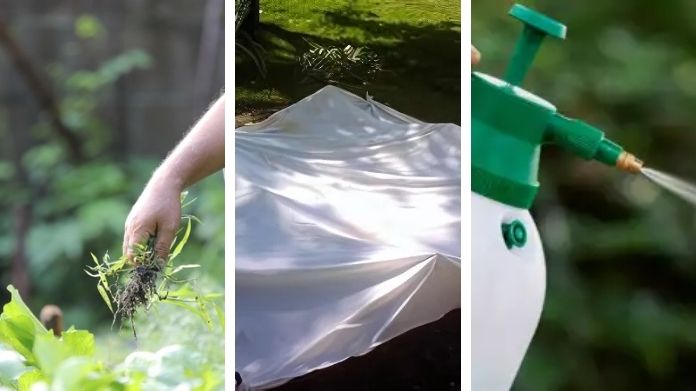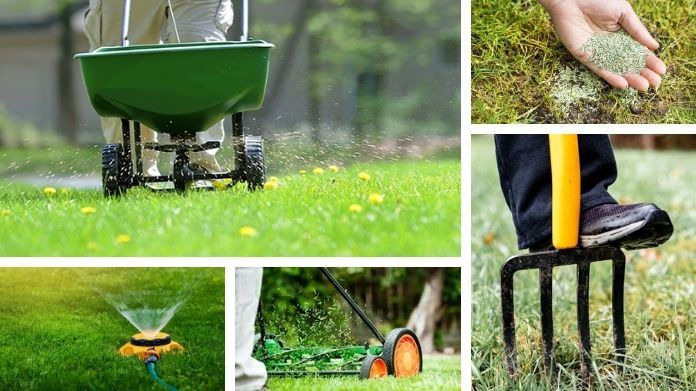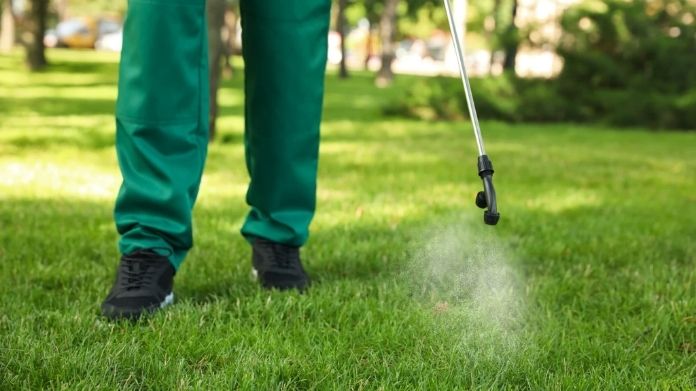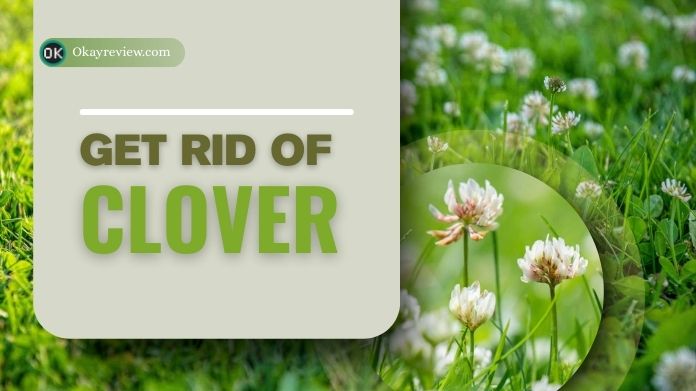Have you ever walked through your yard only to find that some areas that you thought had green grass are suddenly covered with three-leafed little clusters?
Well, then you already know what clover is. For others, it’s a headache that spoils the look of a perfectly manicured lawn.
The challenge is clear: how to get rid of clover in lawn without damaging the grass you’ve worked so hard to grow?
Luckily, there’s no one-size-fits-all solution. From gentle, natural methods to carefully chosen herbicides, there are plenty of ways to reclaim your lawn without sacrificing its health.
Table of Contents
Understanding Clover in Your Lawn
Before you start pulling, spraying, or smothering clover, it helps to know what you’re up against.
The most common culprits are white clover, with its tiny white blossoms, and microclover, a smaller, less invasive cousin that blends easily into grass.
Clover shows up in lawns that are struggling, especially when:
- The soil is low in nitrogen.
- The ground is compacted, and roots can’t spread.
- The pH is off balance (often too acidic).
- Grass is stressed during dry spells.
Now, to be fair, clover isn’t all bad. It naturally adds nitrogen to the soil, which means less fertilizer for you.
It’s also drought-tolerant and provides food for bees. But if your dream lawn is a clean sweep of green grass, clover can feel more like a pest than a perk.
How to Get Rid of Clover in Lawn Naturally?
 If chemicals aren’t your style, don’t worry, clover can be tackled the old-fashioned way to get rid of clover of lawn.
If chemicals aren’t your style, don’t worry, clover can be tackled the old-fashioned way to get rid of clover of lawn.
- Hand-pulling: For small patches, this is surprisingly effective. The key is patience; you’ll need to get the entire root system, or clover will pop right back up.
- Block the sunlight: Cover clover patches with plastic sheeting for a couple of weeks. Without the sun, clover can’t survive, though this method only works for smaller areas.
- Organic remedies:
- A vinegar spray will kill clover, but it is indiscriminate: If you are not careful, it will also kill your grass.
- Other organic herbicides made from vinegar, sodium borate, or ammoniated soap offer milder options.
- For the prevention of clover seeds sprouting in the first place, corn gluten meal can be used.
These methods would work for a few sore spots. However, in truly massive infestations, these methods should be amalgamated with heavier lawn care practices.
How to Get Rid of Clover with Lawn Care Practices?
The best way to get rid of clover at lawn is to give your grass the upper hand. When your lawn is thriving, weeds don’t stand much of a chance.
 Here’s how to shift the balance:
Here’s how to shift the balance:
- Feed your grass: Use a nitrogen-rich, slow-release fertilizer. Grass loves it, and clover loses its advantage.
- Raise the mower blades: Keeping your grass around 3 inches tall shades the soil, making it harder for clover to get the light it needs.
- Water wisely: Shallow watering helps weeds. Deep, less frequent watering strengthens grass roots so they outcompete clover.
- Fix the soil: Aerate those tight spots and clear out the thatch to let air and water flow better.
- Fill the gaps: If you spot bare spots, just throw some grass seed down there instead of letting clover take over where the grass isn’t doing so hot.
How to Get Rid of Clover in Lawn Using Selective Herbicides?
 Sometimes clover has already made itself too comfortable, and natural methods just don’t cut it. In that case, selective herbicides may help.
Sometimes clover has already made itself too comfortable, and natural methods just don’t cut it. In that case, selective herbicides may help.
Find products with triclopyr. It targets broadleaf weeds like clover, and grasses are left unharmed. Two popular choices include Scotts® Turf Builder Weed & Feed and Ortho® WeedClear.
A few tips for success:
- Apply in mild weather, not during extreme heat or rain.
- Follow instructions carefully; more product doesn’t mean faster results.
- Avoid mowing right before or after applying so the herbicide has time to work.
Preventing Clover from Returning
Get rid of clover once is good. Keeping it gone is better. The secret lies in lawn health.
- Fertilize consistently so your grass never runs short on nutrients.
- Test your soil’s pH and add lime if it’s too acidic.
- Stick to a routine: mow high, water deeply, overseed when needed.
Consider clover an alert system, if it shows up, it most usually means that your grass is under severe stress. Take care of the main problem, and then clover-trouble will take care of itself.
Should You Keep Clover Instead of Removing It?
Here’s a thought: Maybe clover isn’t the enemy. More and more homeowners are actually growing clover lawns on purpose.
They remain green in drought conditions, require less fertilizer, and provide food for pollinators.
Whether you like the sight of clover mixed into grass, or whether you’re taking a pro-ecology view, might be the easy question now. It really just depends on your lawn ambitions.
Wrapping Words
You can avoid, cure, or pull clover with proper lawn care, so don’t be afraid of it. However, there are other advantages that can persuade you to keep it.
Strong grass, good soil, and consistent maintenance are the three main components of a healthy lawn in any case.
Would you like me to create several different versions so you may select the one that best suits the tone of your article?

